Bouley at Home, or Maybe Not
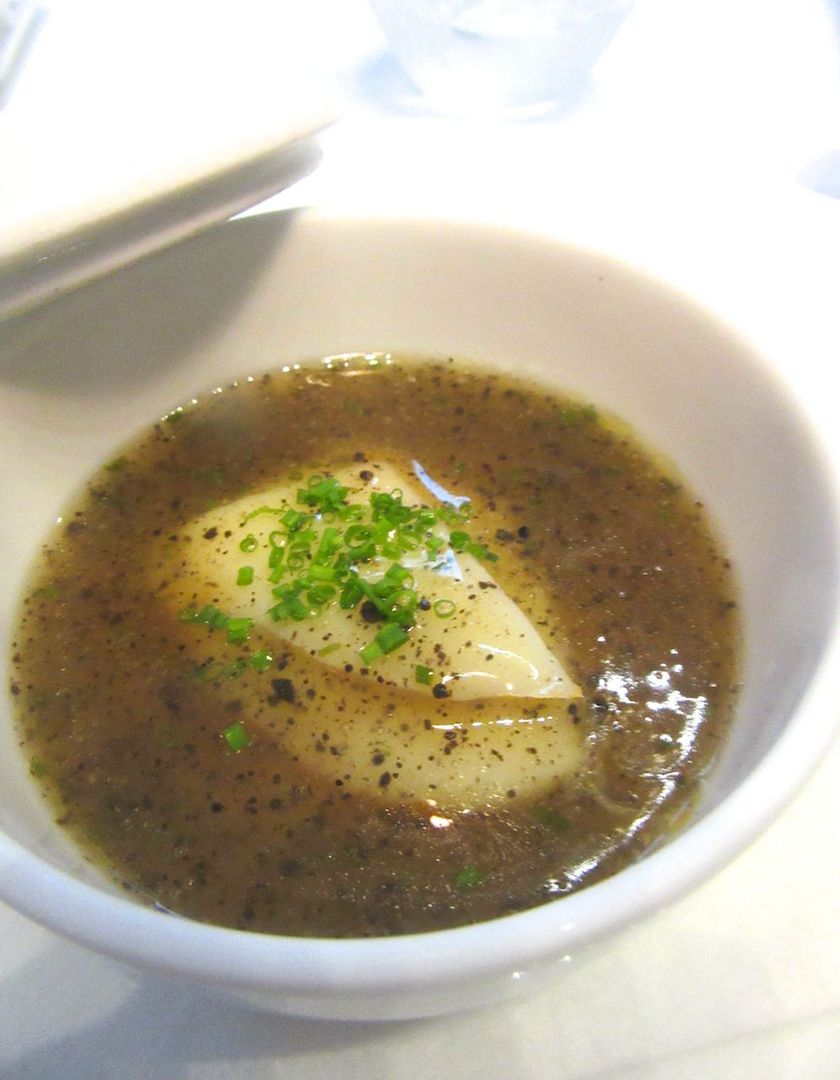
Porcini flan and smoked wild Washington State sable are anchored in Chef Bouley’s thick black truffle dashi.
I will confess right here at the start that it is not ideal to do the Bouley at Home $225 tasting when Bouley, alas, is not at home. But how could we have known? We reserved so far ahead. A small collection of young men in newsboy caps stands duty behind the counter, grating, sautéing, moving back and forth into the automatic refrigerator light.
David Bouley is not especially tall, but he is a large presence. He is definitely not here.
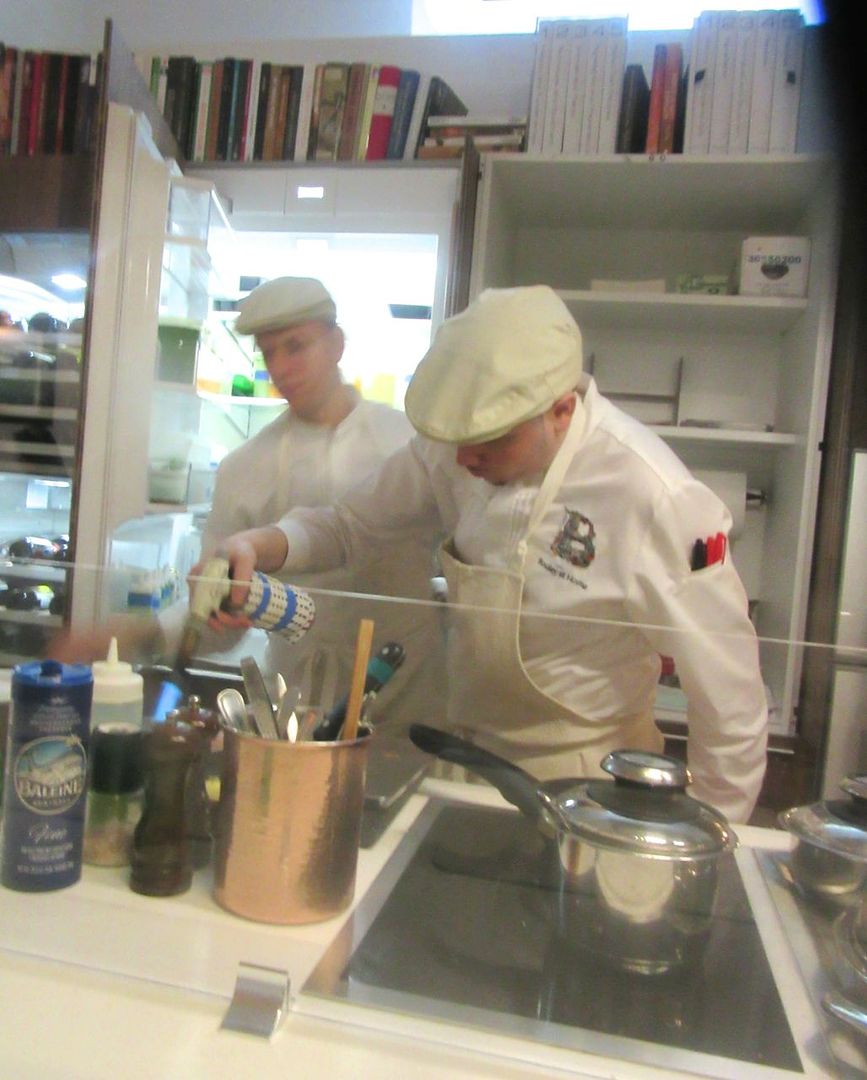
Bouley at Home doesn’t seem homey even with its newbie chefs working at home-style appliances.
“He’s in Paris,” our nearby newbie confides from behind the glass that separates us. “He’s always here,” he adds. “He never left before.”
I murmur to my companion, “Perhaps he went to Lyon for the funeral of Paul Bocuse and is lingering to see what they’re eating now in Paris.”
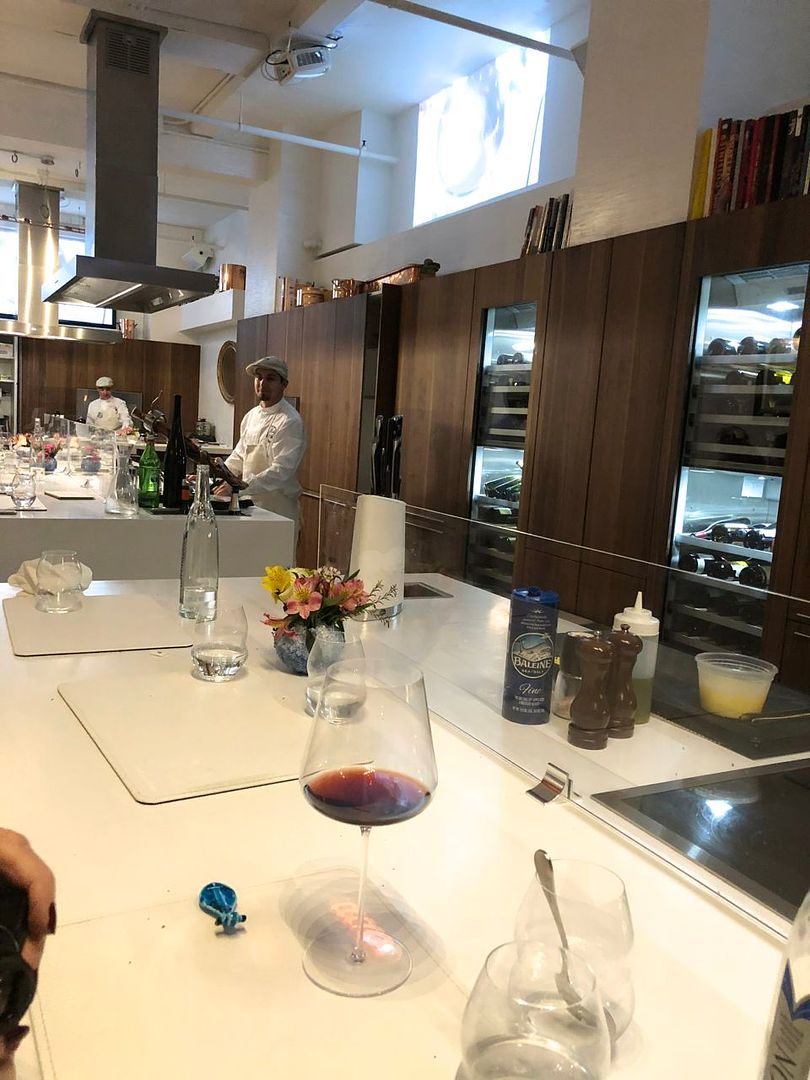
Early on a frosty night the counter at Bouley’s new laboratory-school room is not yet occupied.
The place doesn’t look very homey to me. Pretty flowers in three or four fussy little vases can’t do the magic. Maybe residential-style cooktops and small refrigerators mean “home” to chefs trained with actual flames at the Culinary Institute of America. There are giant screens above with images of Bouley slicing and searing. It’s a counter shop. It’s a storefront. It’s a classroom. Our designated cooker says he’s come here straight from the CIA. It’s a school for chef hopefuls.
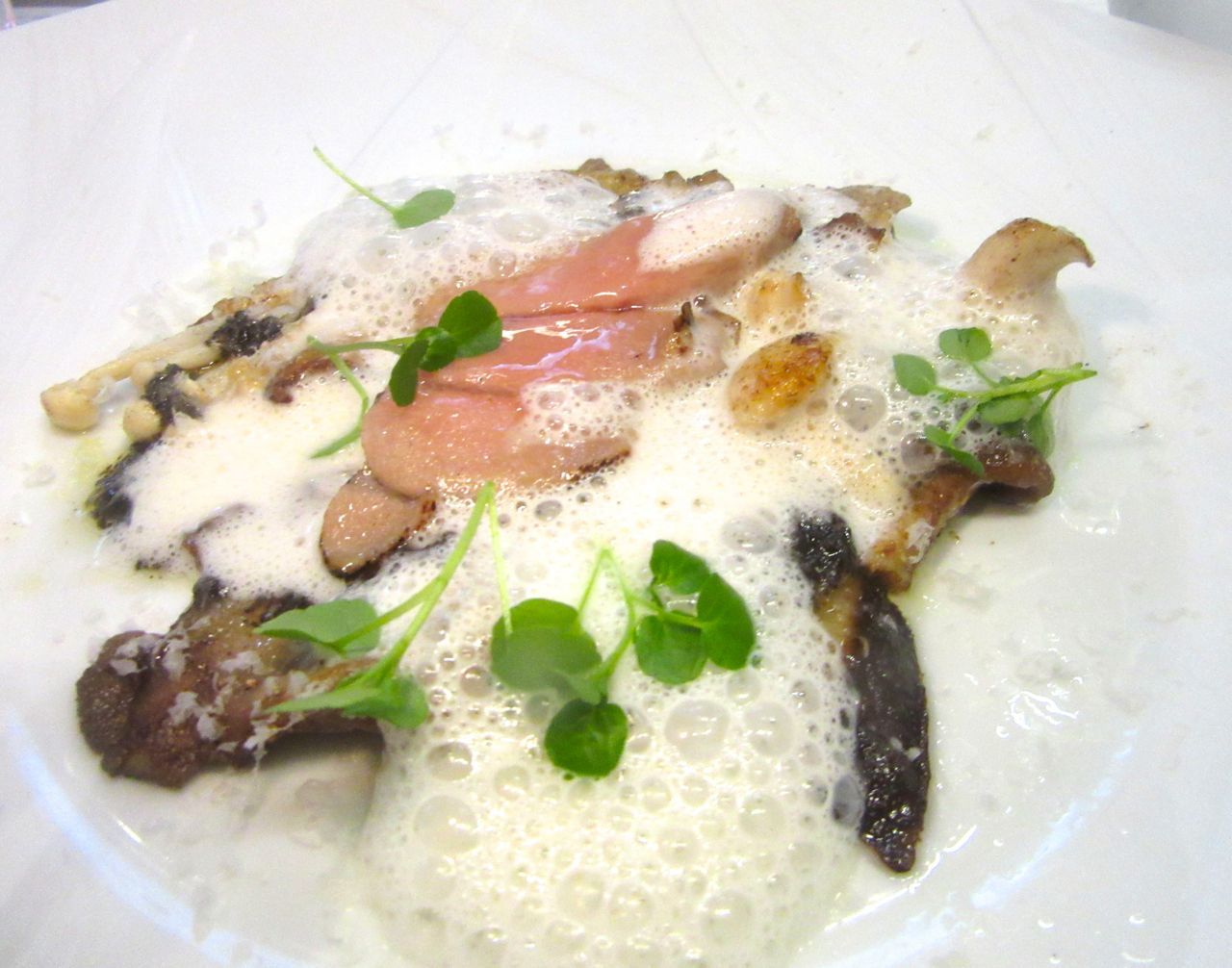
Blue fin toro and wild mushrooms float in a coconut, garlic broth with biodynamic watercress.
A pair of cheap wooden chopsticks rests on a turquoise guitar chopstick holder, and an exquisite thin-stemmed crystal balloon goblet waits. “It’s like home because you get your own silver from the drawer in front of you,” a server instructs. The drawer has no knob. One must reach under, and find a space that lets you slide it open. Imagine what the $225 tasting might cost if someone else delivered the silver: four knives, four forks, four soup spoons.
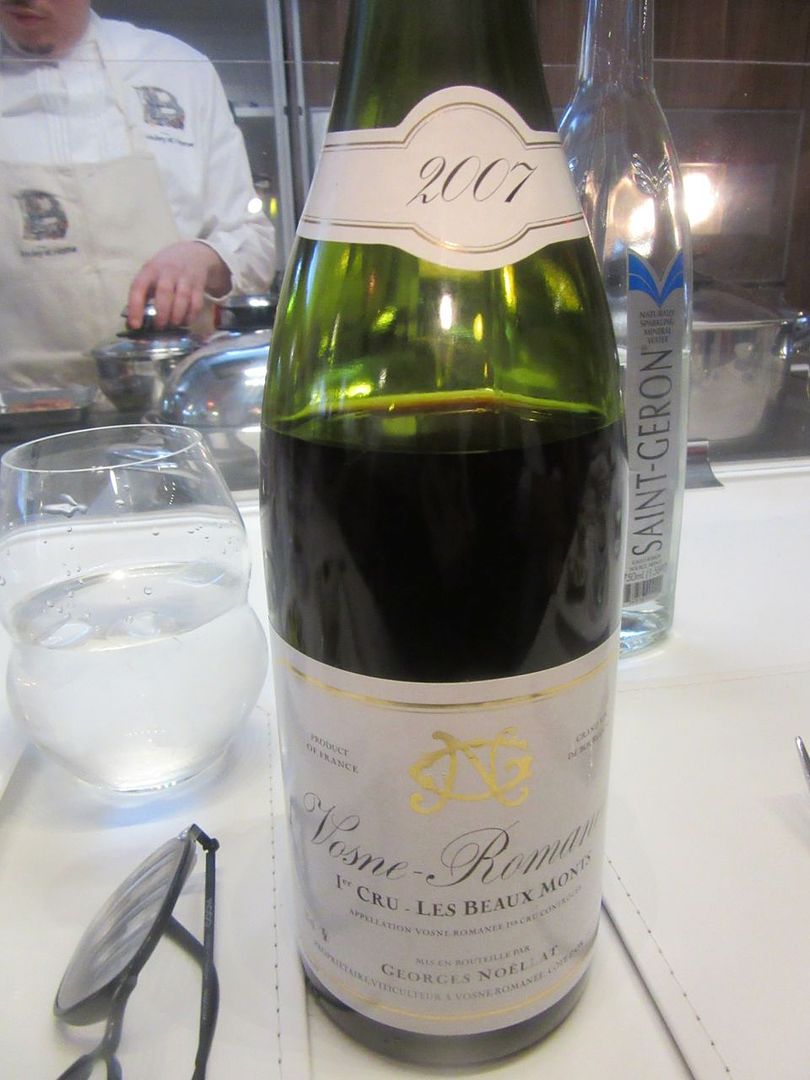
My companion Wilfred is a charming bon vivant who likes great wine and doesn’t mind paying for it.
Wilfred, on my right, is not just your everyday simpatico dinner date who can afford his share. He is smart and spoiled, a traveler, a voluptuary. He also happens to be a serious wino and does not hesitate to treat himself well. Tonight he and the woman familiar with this new Bouley cellar have focused on a 2007 Vosne-Romanée of Georges Noëllat at $230.
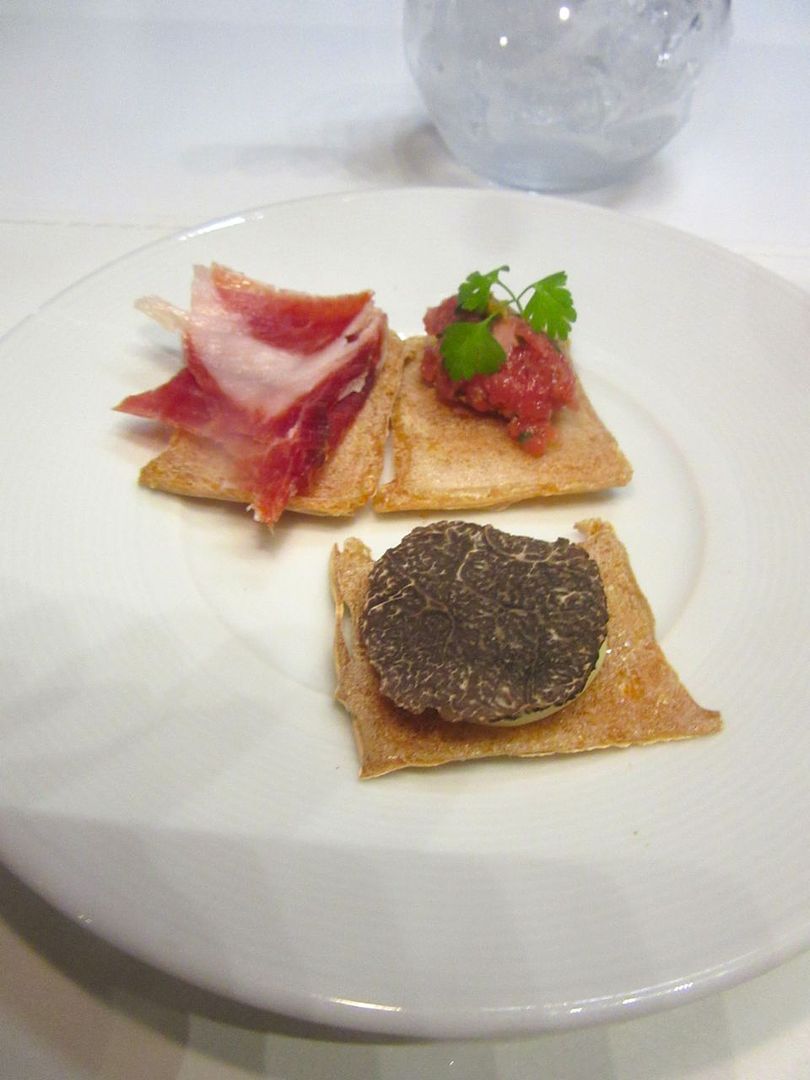
Familiar amuses arrive: black truffle on aligoté, Ibérico ham, and New York state sirloin tartare on yuzu chips.
He sips. I sip and murmur appreciation. A trio of amuses on yuzu chips arrives. A black truffle thin hiding a melt of aligoté, chewy squares of Ibérico ham, and a small dollop of 100% grass-fed New York sirloin tartare are the same amuses delivered the January night we said farewell to Bouley as he worked the room of his overstuffed palace on Duane Street. Click here to read “Last Bell at Bouley”
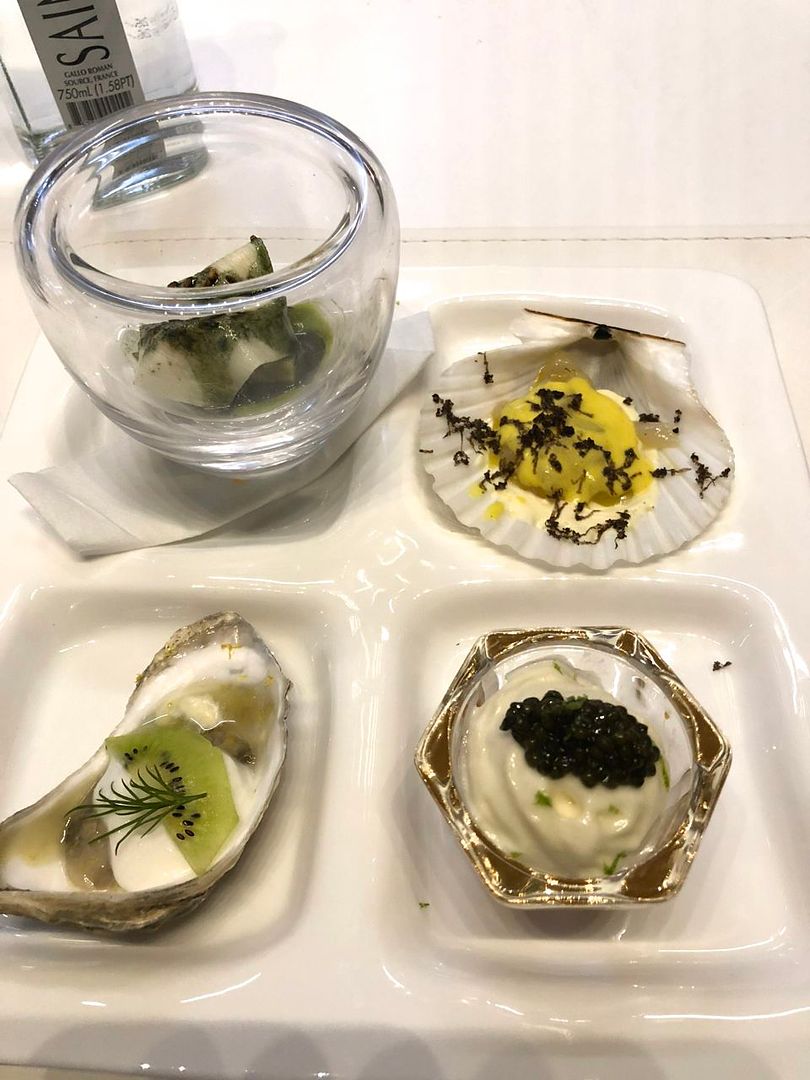
A collections of treasures from the sea – uni, langoustine and oysters two-ways – are a brilliant launch.
I’m not bothered that the quartet of sea creatures following is familiar too. They’re wonderful, spectacular little jewels of the sea. Bouley classics. Indeed, tonight’s tasting would be a triumph if it just ended here with the Malibu sea urchin hiding in the creamy green apple cloud and its crown of golden osetra caviar. Rich. Rich. Rich. Maine Belon oysters are seriously dressed too, one flavored with bergamot, the other wrapped with kiwi. Avocado and fresh hearts of palm accompany the langoustine in a chunky crystal bowl. If each course includes four dishes, I wonder, how will we survive?
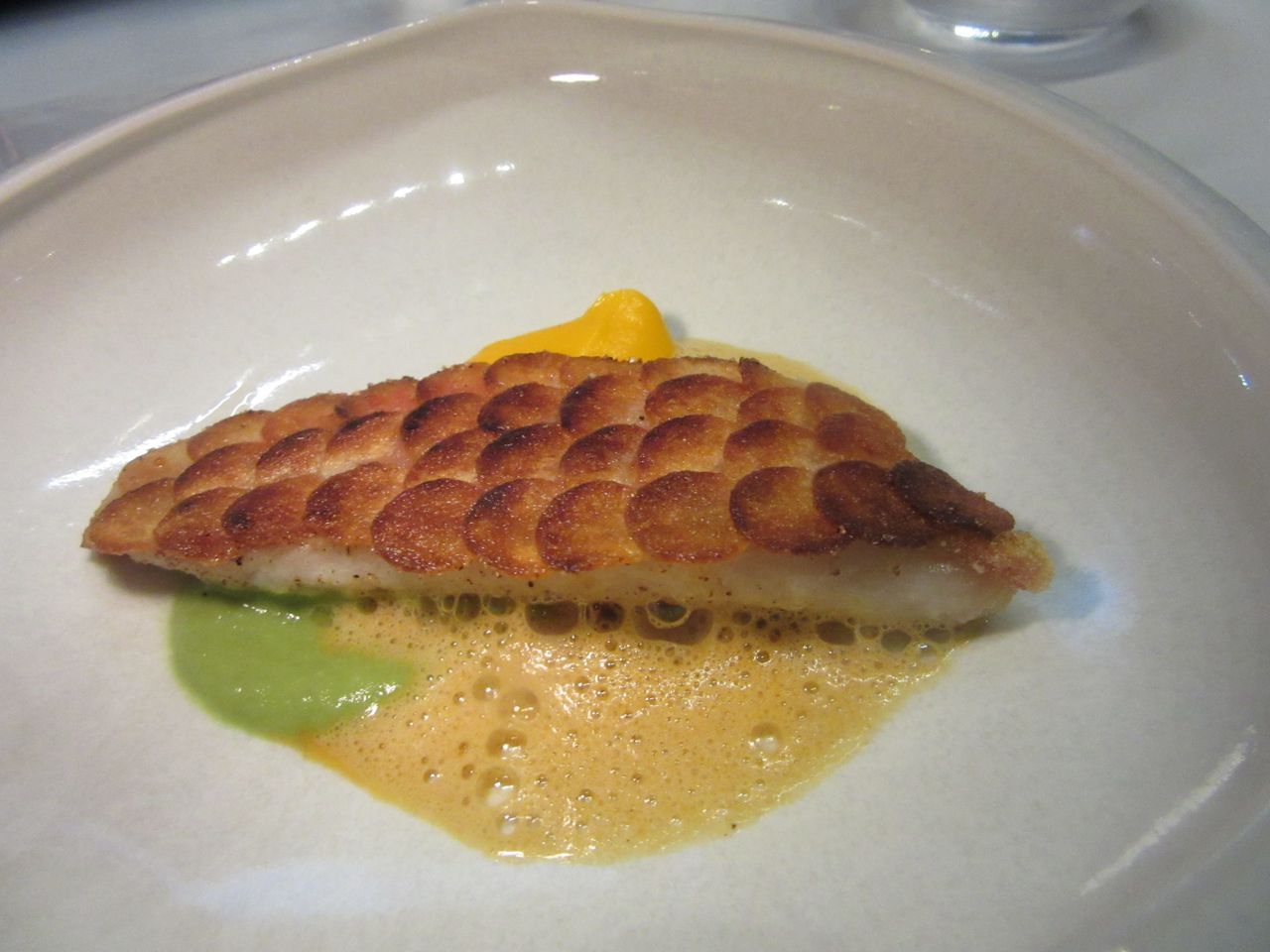
St. Laurent or Dior could not have designed a more thrilling cloak than Bouley’s for the rouget.
The small cut of Mediterranean rouget is so exquisitely decked out in small fingerling potato crisps that I can almost ignore a certain blandness, even given puddles of fennel-cardamom, and saffron sauces swirled below. And the fish is sweet too, strangely sweet. Coconut garlic broth also lends sweetness to the blue fin toro atop “a forager’s treasure” of wild mushrooms.
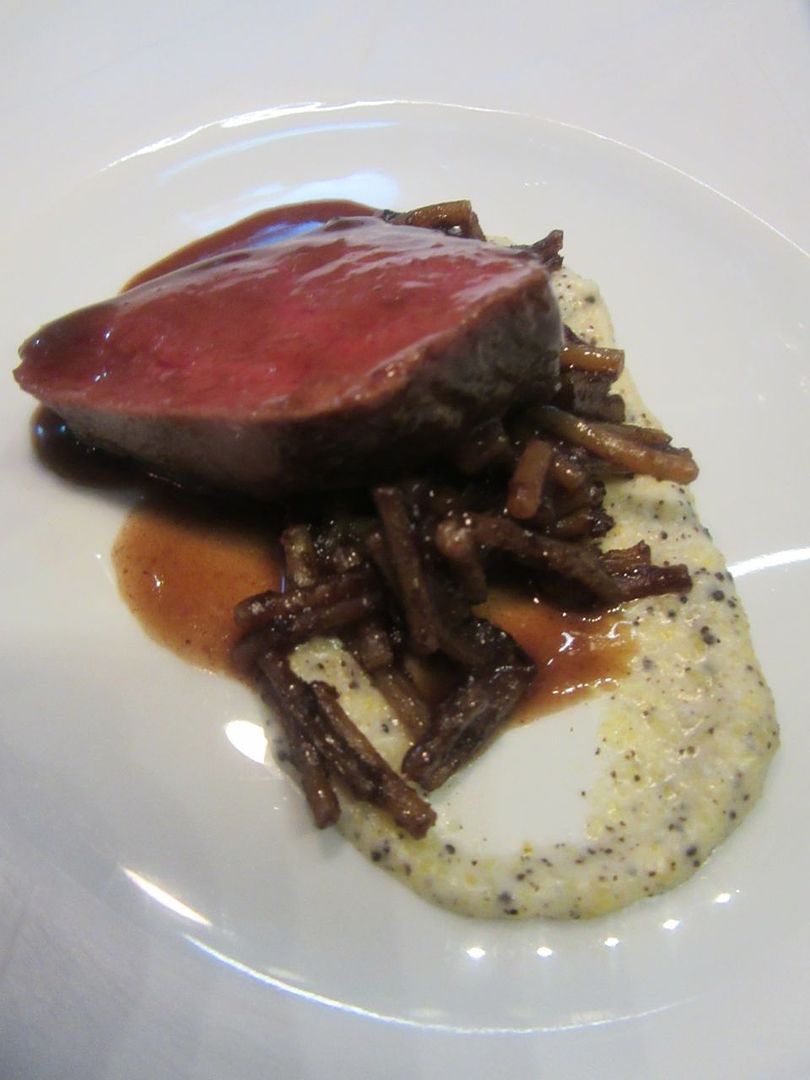
White Fallow venison sits on buckwheat noodles “paella” in stone ground polenta napped in red wine miso.
I tasted Bouley’s black truffle dashi years ago when he was first seduced by Japanese thickeners. Goop isn’t my favorite texture. But the porcini flan is so smooth and rich on smoked wild sable that for a moment I think it is foie gras.
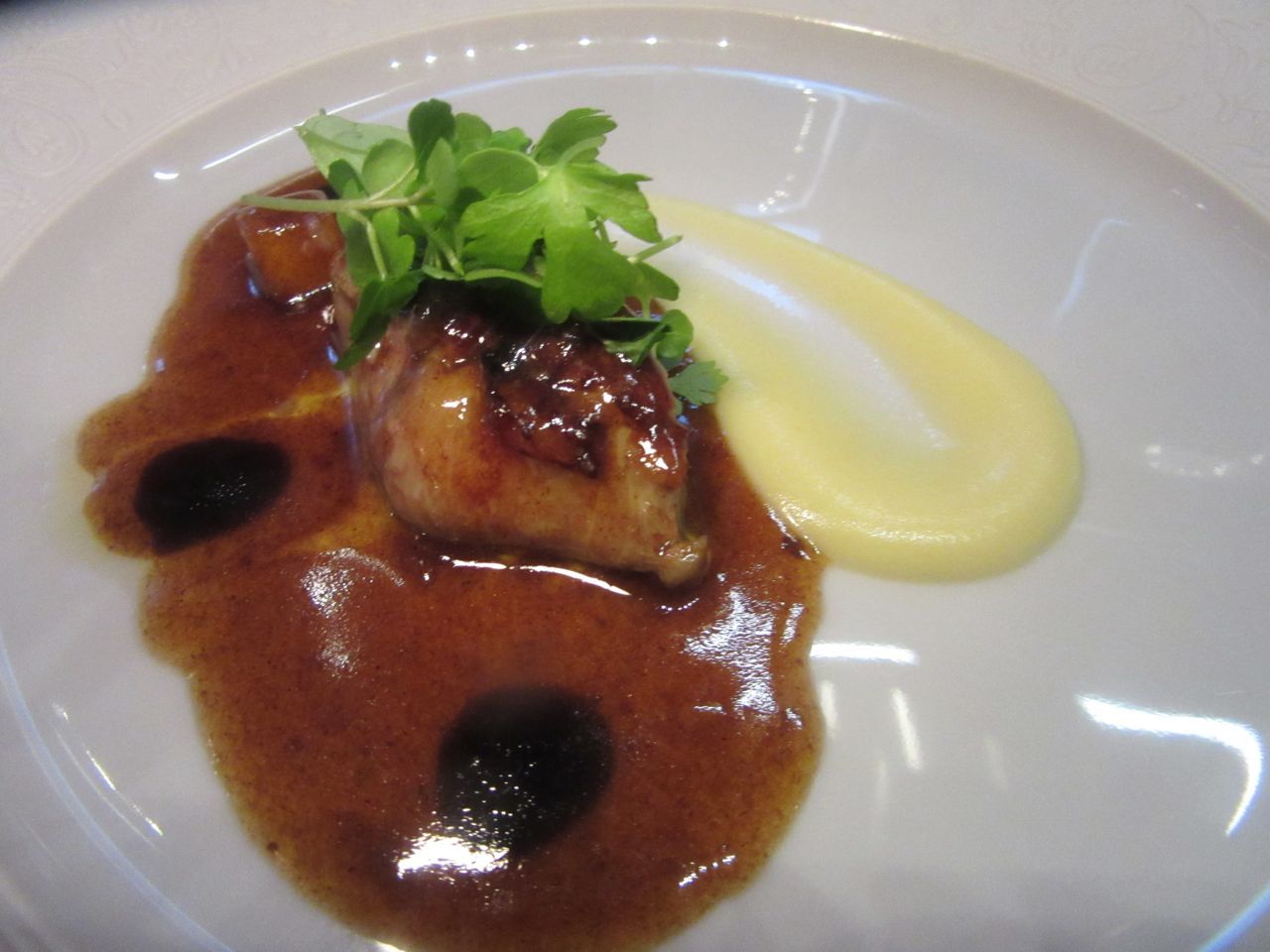
Fresh persimmon and rosemary apple accompany roasted NY State foie gras with a flurry of special spices.
But no, the foie gras comes after, with spiced fruit, fresh persimmon, and rosemary apple. Venison on buckwheat noodles in polenta, swathed with a rich red wine miso sauce, follows with a cup of broth alongside. This “Immune Booster,” made from organic chicken broth cooked for 12 hours, is just what we need. It’s freezing outside again and the flu headlines are scary.
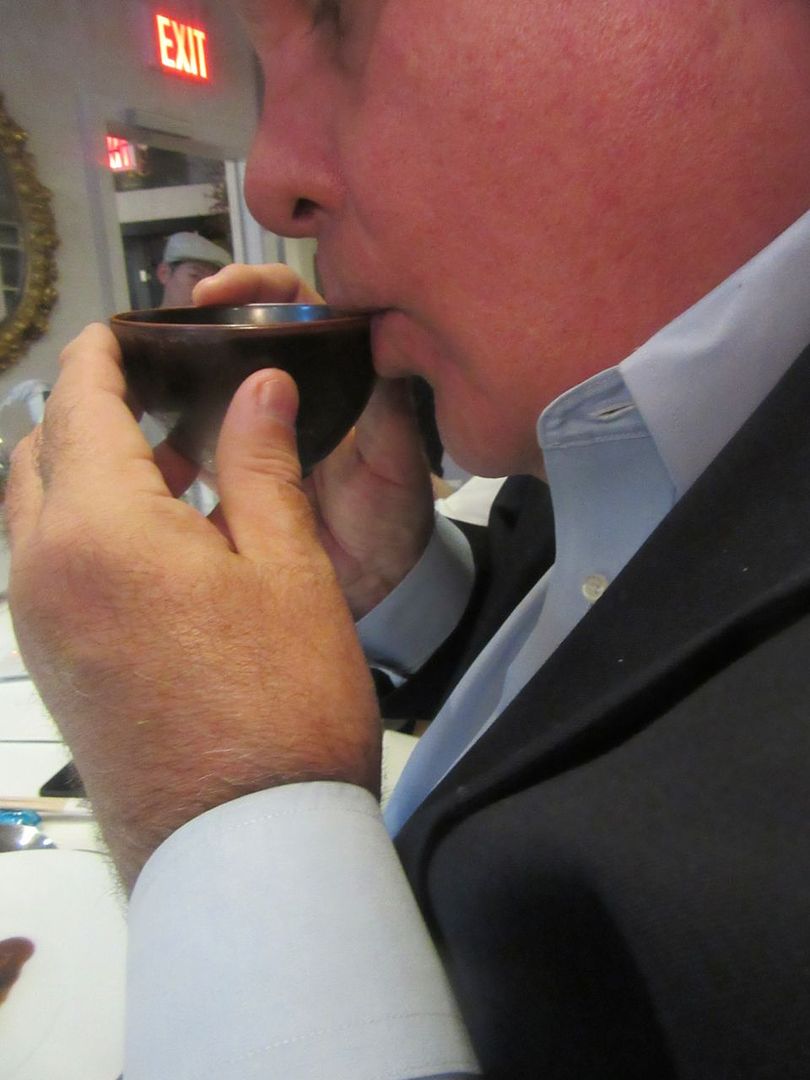
Wilfred sips the “Immune Booster,” chicken broth brewed for 12 hours.
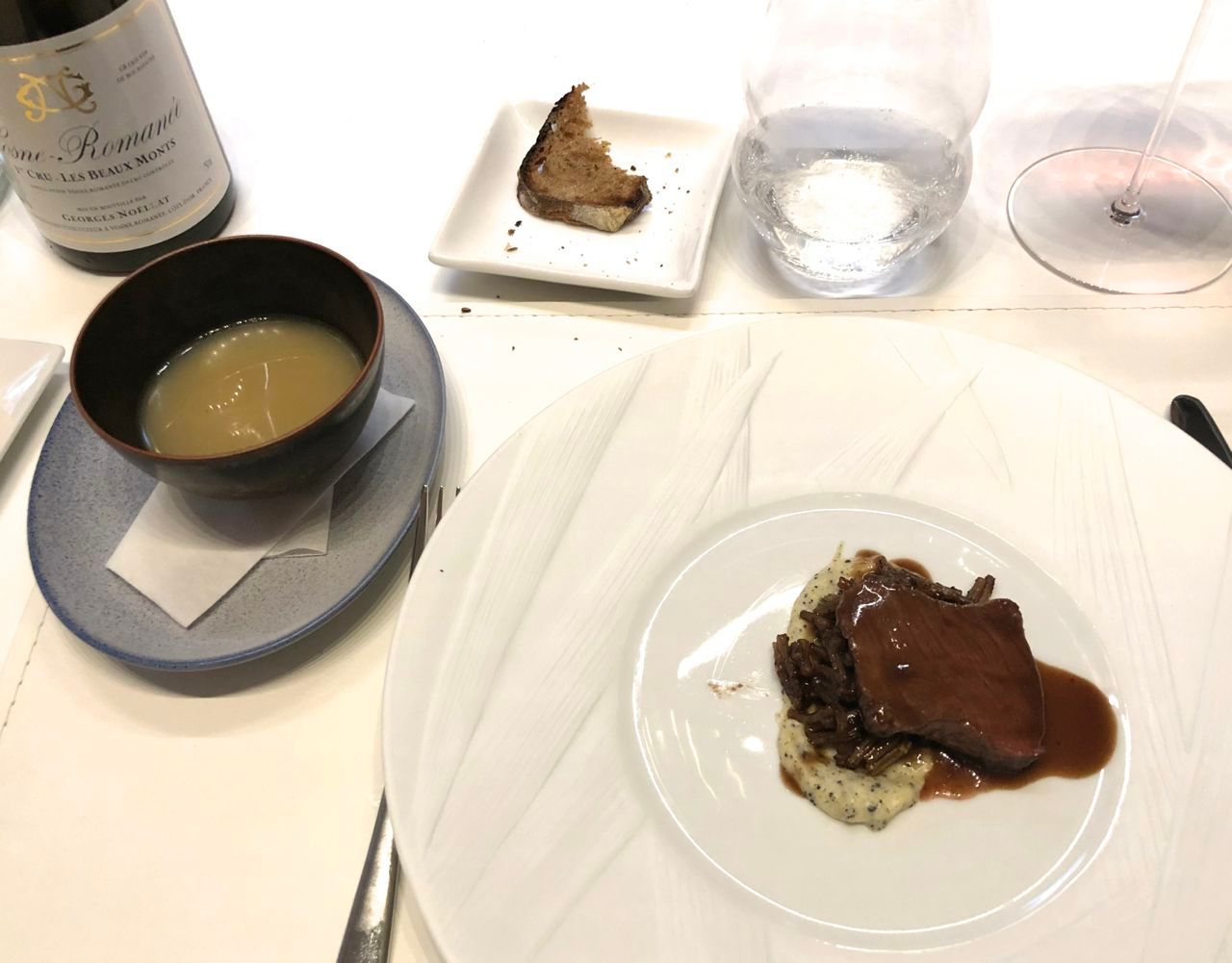
The venison course includes excellent pumpernickel bread or olive bread and more if you ask.
In ways, Bouley has always reminded me of my grandmother. “Eat, eat, eat,” they would both say, bringing another plate. What I miss here tonight is the rolling bread cart of Duane Street with more than a dozen choices from the bakery. But at some point, a server delivers squares of very serious, dark pumpernickel bread. And butter, too cold to spread, at first.
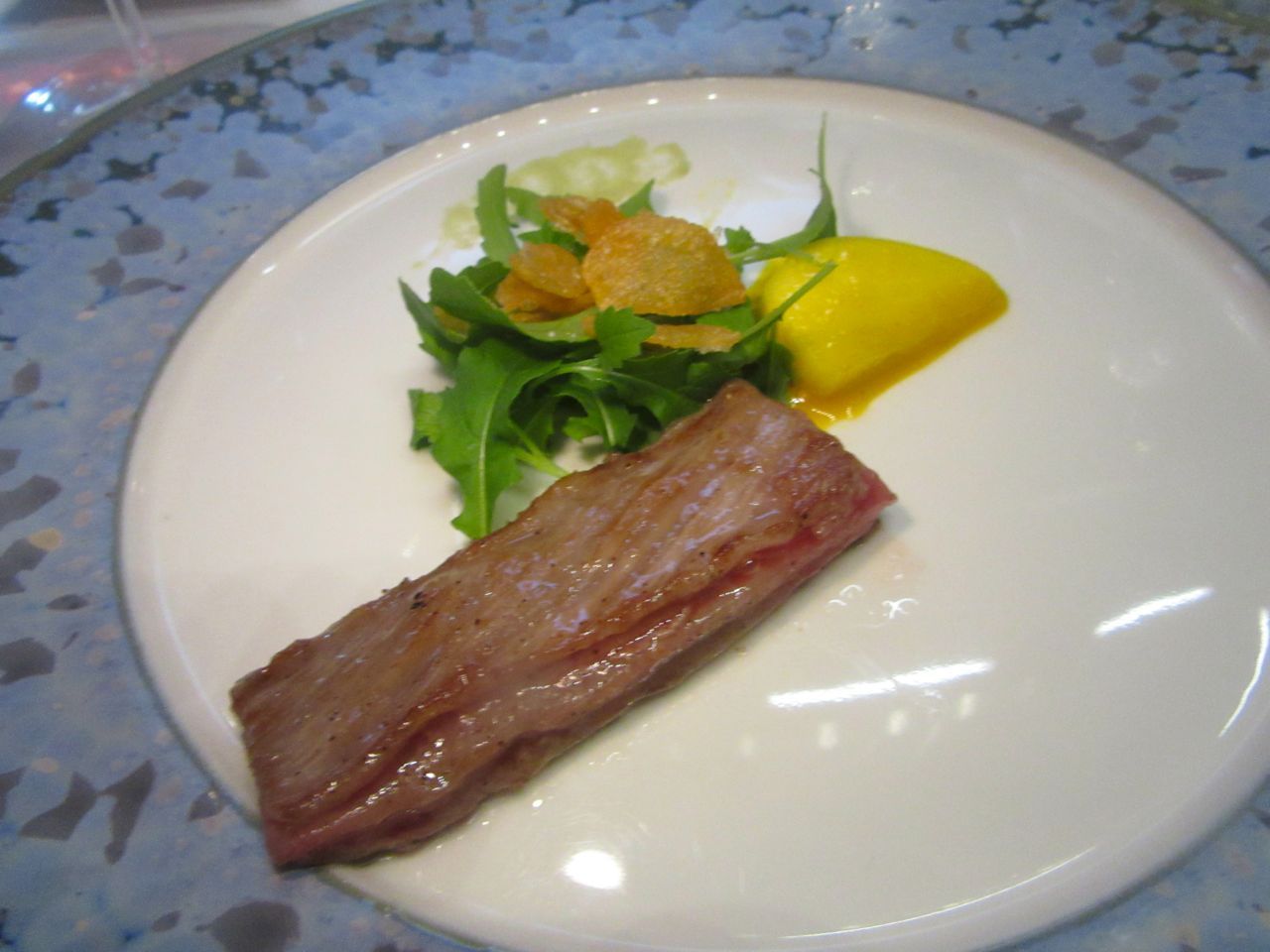
Layers of prized kobe meat create a “Millefeuille” delivered in the climactic moment of the tasting.
Some of these portions are larger than I expect in a tasting. Very rich, very filling. Fortunately, we have eaten our way toward the finale when the beef arrives. What’s described on the menu as a millefeuille is actually thin layers of kobe beef with more foie gras. I manage a taste.
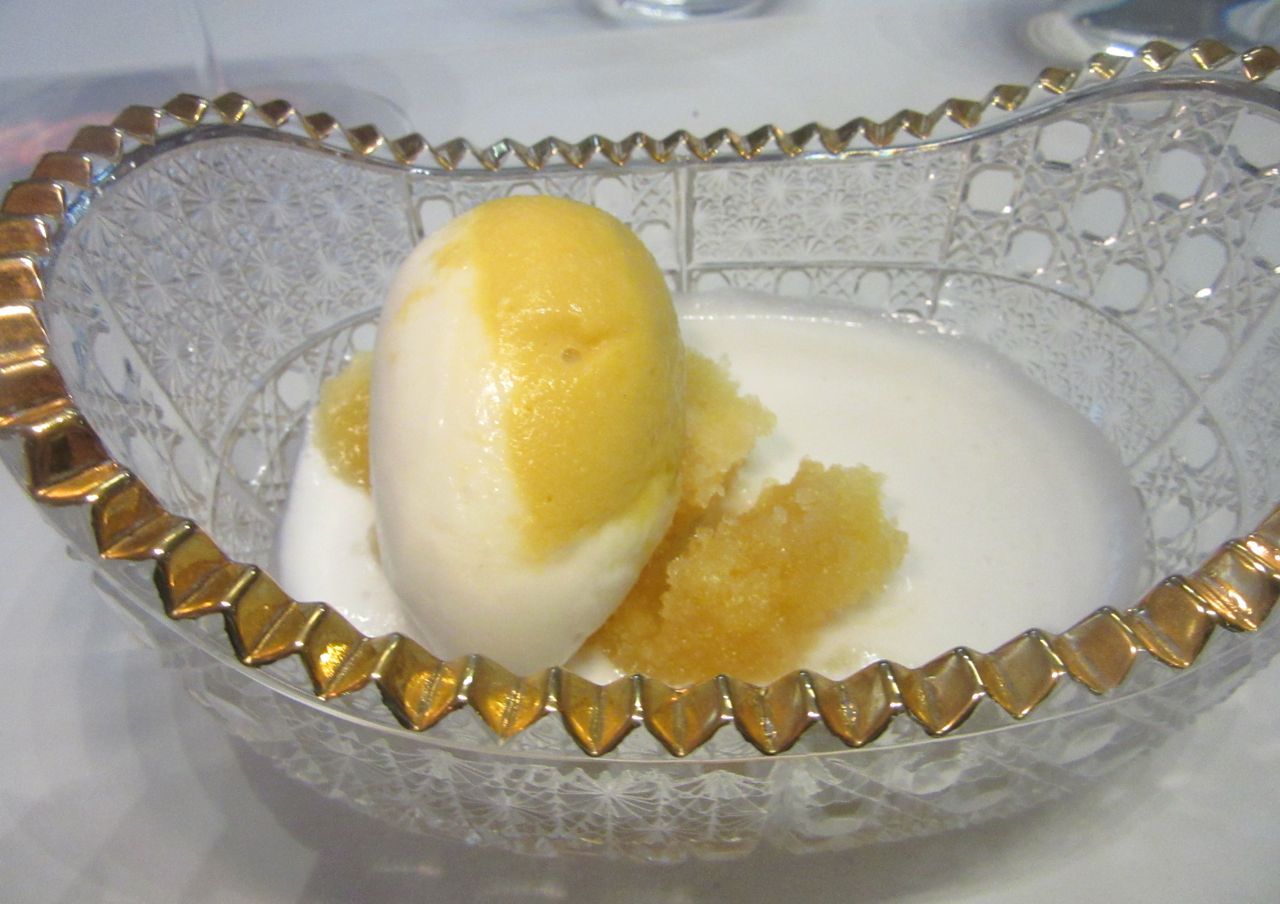
Just in time, to resuscitate the palate: pineapple granite, ten exotic fruit sorbet and amaretto ice cream.
In the pause, Wilfred looks up the current price of the Vosne-Romanée online and is thrilled to discover it retails for more than the $230 he’s paying. He quickly sends news of his triumph to Facebook.
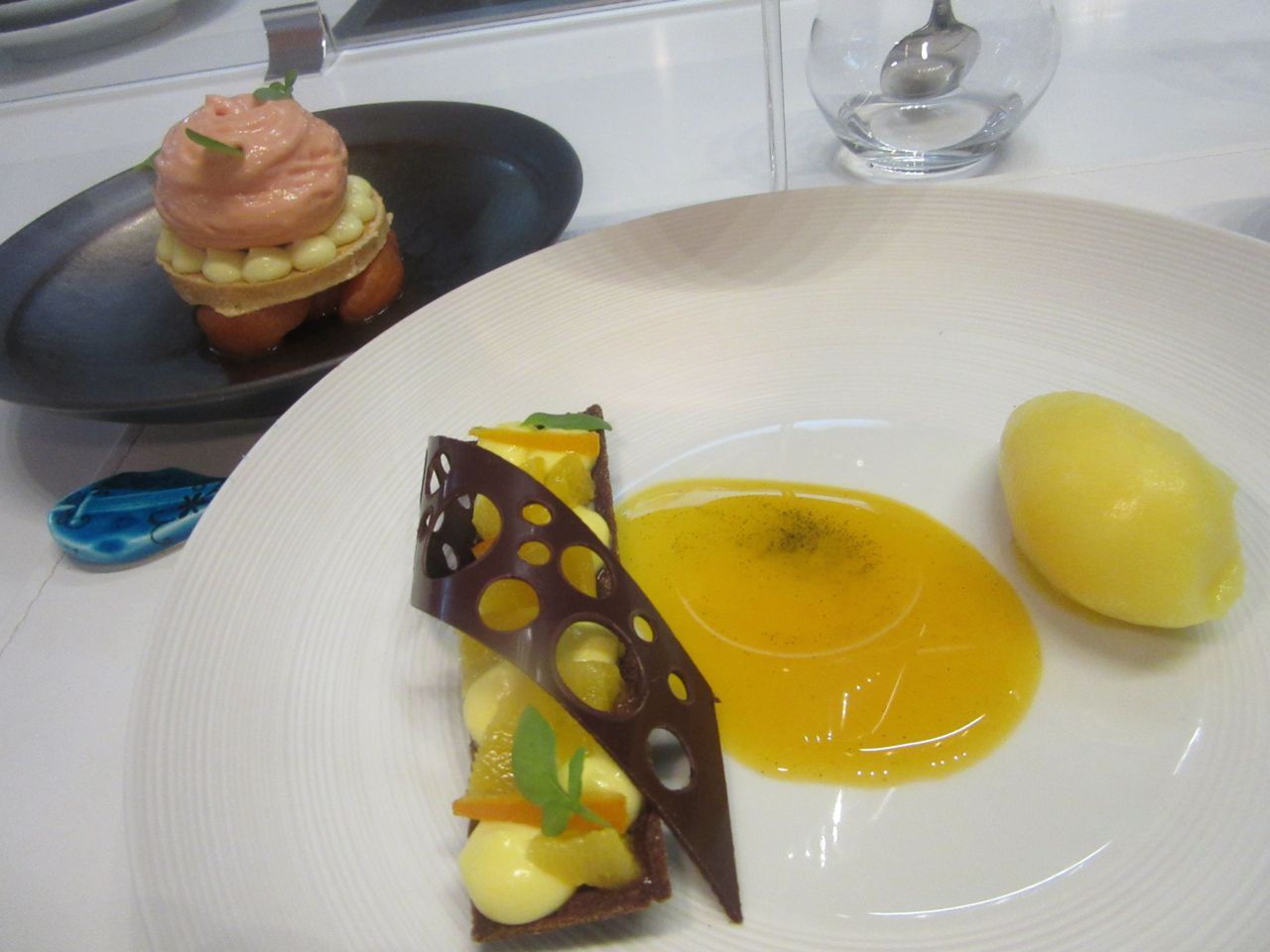
There’s a choice of desserts on the tasting menu, but our server decides we must taste them all.
Now the palate restorer arrives in a large glass dish with yellow edging: It has that handblown-in-Murano look. Pineapple granita, exotic fruit sorbet, and amaretto ice cream, sweet and cold, are wonderfully refreshing.
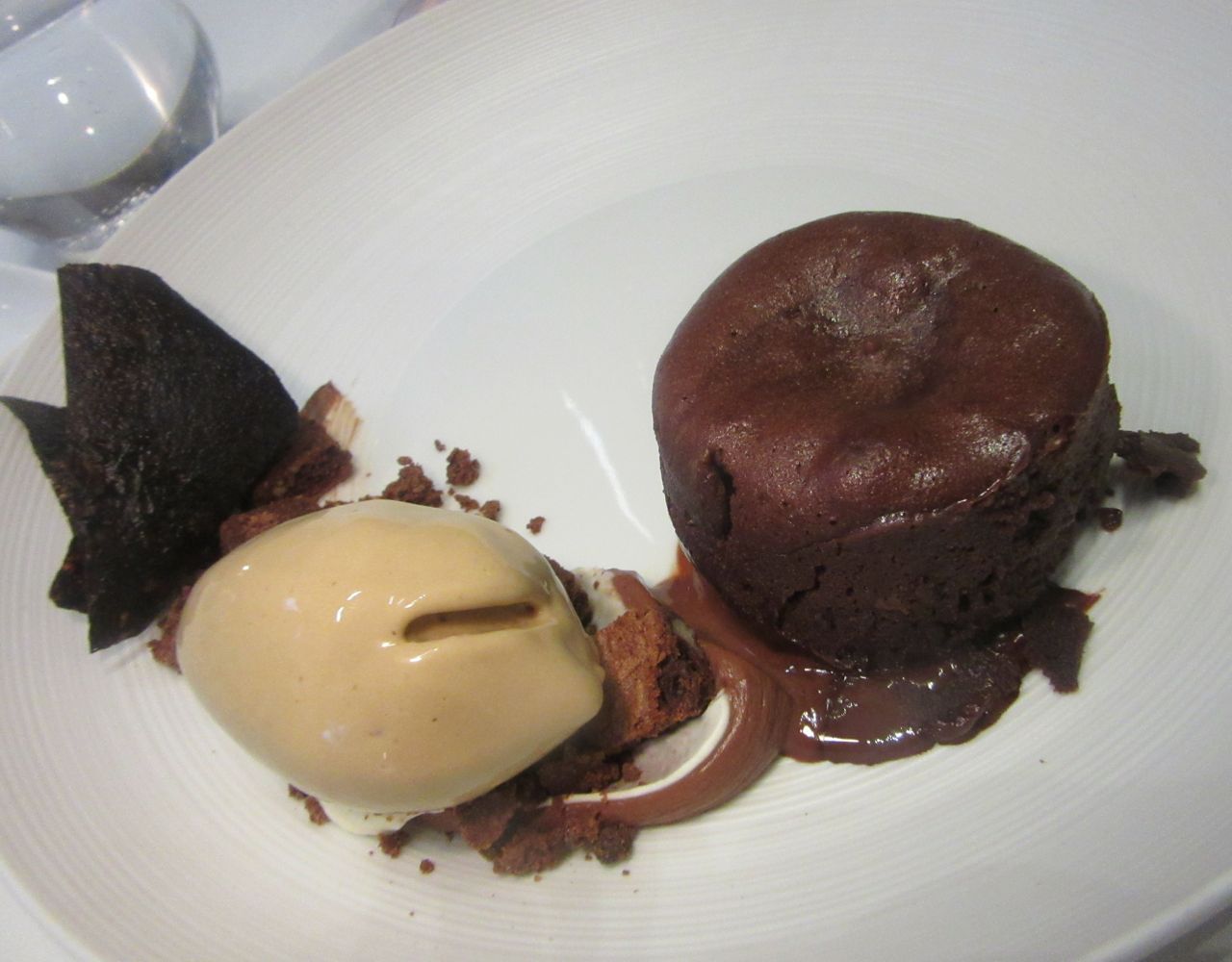
I find the chef’s brilliant melting chocolate frivolous as essential as ever.
Dessert offers the only choice of the evening – chocolate or citrus. Our server brings both. The chef’s classic melting chocolate “Frivolous” from the ‘80s, flanked by Colombian coffee gelato, is as seductive as ever. A citrus vacherin, layered with lime meringue and mandarin, comes with grapefruit and clementine sorbets.
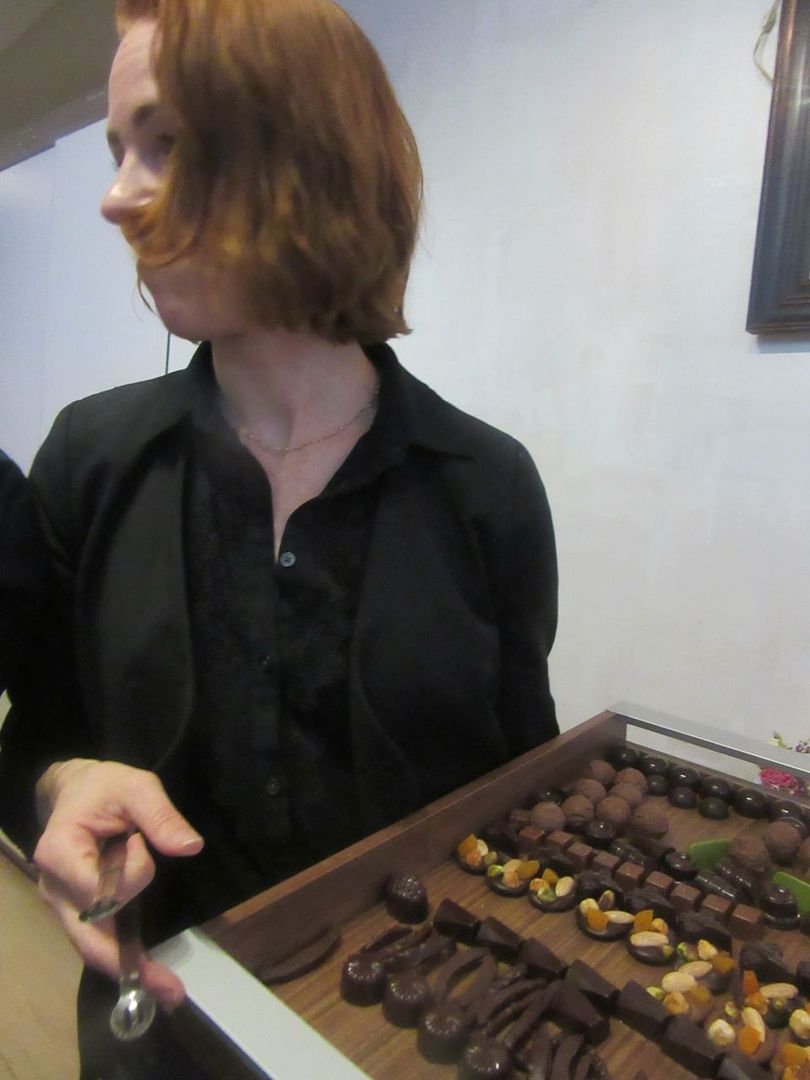
I think all evenings should end with a choice of freshly made chocolate bon bons.
Behind us, the sommelier stops with a tray of chocolates. I choose yuzu and passion fruit. She plucks another five or six items from her tray for us, including chocolate-covered orange peel. I take a bite of each for research’s sake and because I can’t help myself.
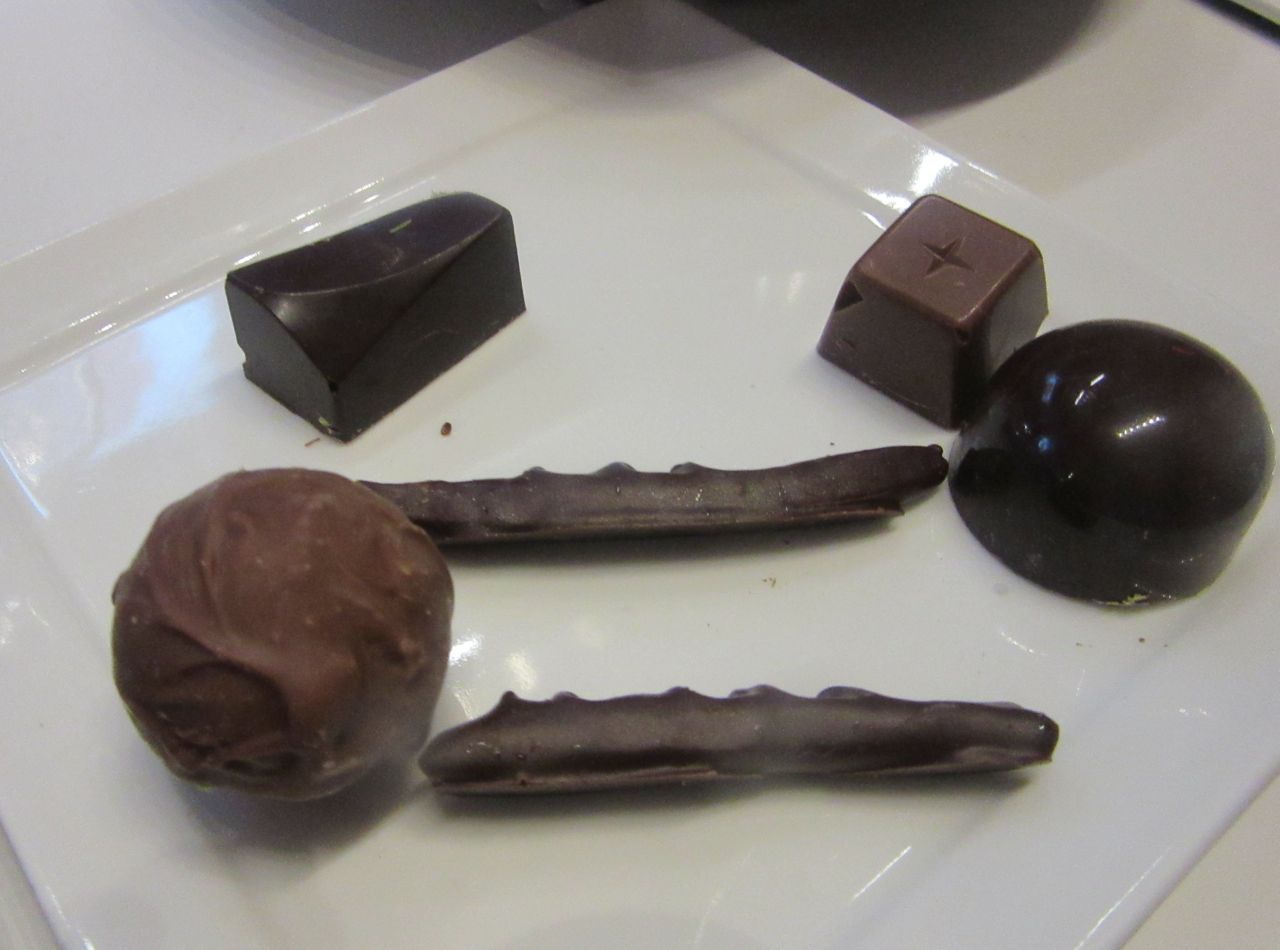
Given a choice, I pick yuzu and passion fruit chocolates, but then the sever decides we should have more.
Our $901.49 bill, includes a 20% “Administration” charge we will split. With Wilfred paying for the wine, my share drops to $300.50. Thrilled by his wine coup,Wilfred plans to come again. But for me, $300 seems outrageous. I’d like someone else to Administrate my silverware. I suppose one could economize with the $59 tasting lunch.
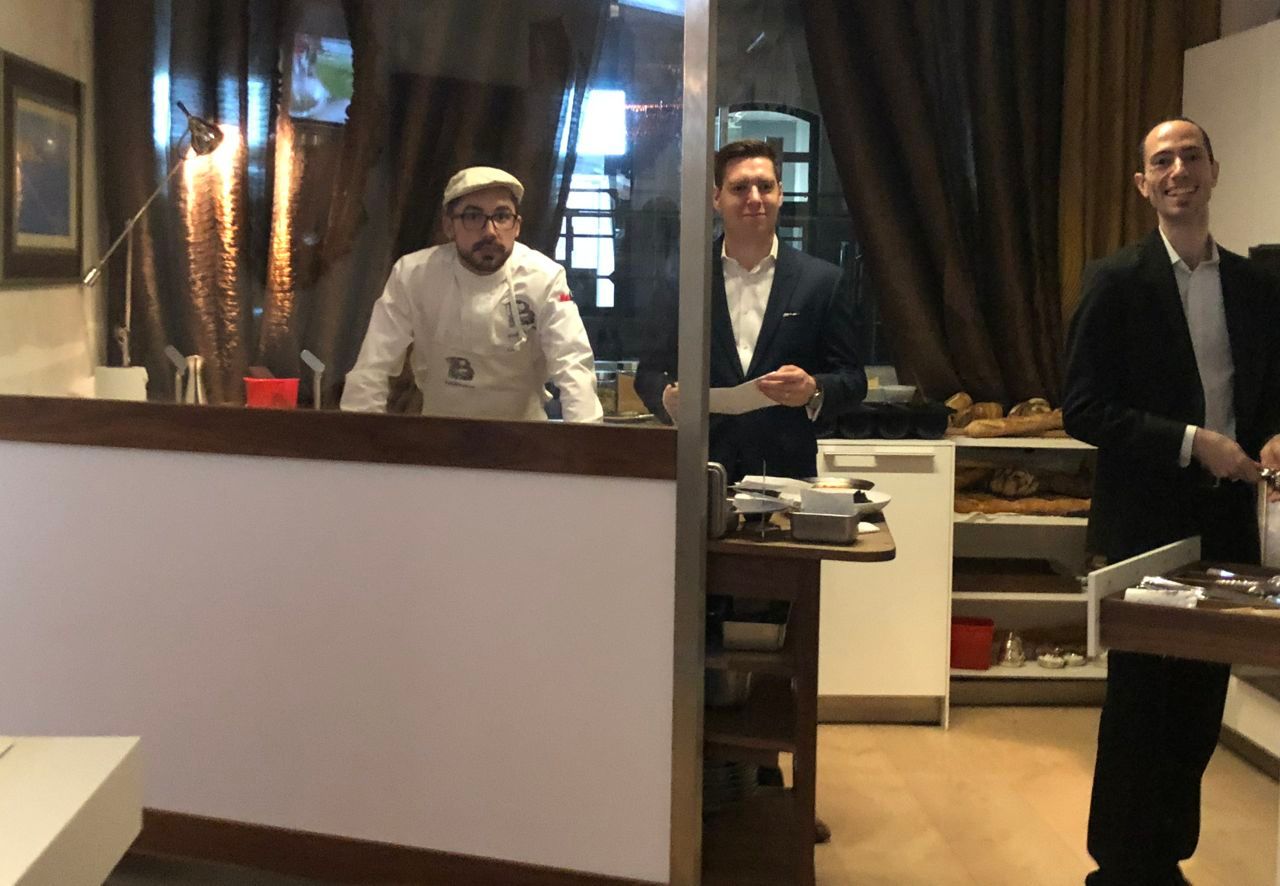
From the office overlooking the street, Bouley’s team keeps as eye on the counter action.
And what is this “Administrative” nonsense anyway? Let’s call it a tip, please. And how about including it in the price of the meal?
31 West 21st Street between Fifth and Sixth avenues. 917 237 3205. Tuesday through Saturday lunch 11:30 am to 3:15 pm, dinner 5:30 pm to 10:15 pm.
In her role as restaurant critic of New York Magazine (1968 to January 2002) Detroit-born Gael Greene helped change the way New Yorkers (and many Americans) think about food. A scholarly anthropologist could trace the evolution of New York restaurants on a timeline that would reflect her passions and taste over 30 years from Le Pavillon to nouvelle cuisine to couturier pizzas, pastas and hot fudge sundaes, to more healthful eating. But not to foams and herb sorbet; she loathes them.
As co-founder with James Beard and a continuing force behind Citymeals-on-Wheels as board chair, Ms. Greene has made a significant impact on the city of New York. For her work with Citymeals, Greene has received numerous awards and was honored as the Humanitarian of the Year (l992) by the James Beard Foundation. She is the winner of the International Association of Cooking Professionals magazine writing award, 2000, and a Silver Spoon from Food Arts magazine.
Ms. Greene's memoir, "Insatiable, Tales from a Life of Delicious Excess"(www.insatiable-critic.com/Insatiable_Book.aspx )was published April 2006. Earlier non-fiction books include "Delicious Sex, A Gourmet Guide for Women and the Men Who Want to Love Them Better" and "BITE: A New York Restaurant Strategy." Her two novels, "Blue skies, No Candy" and "Doctor Love" were New York Times best sellers.
Visit her website at: www.insatiable-critic.com

